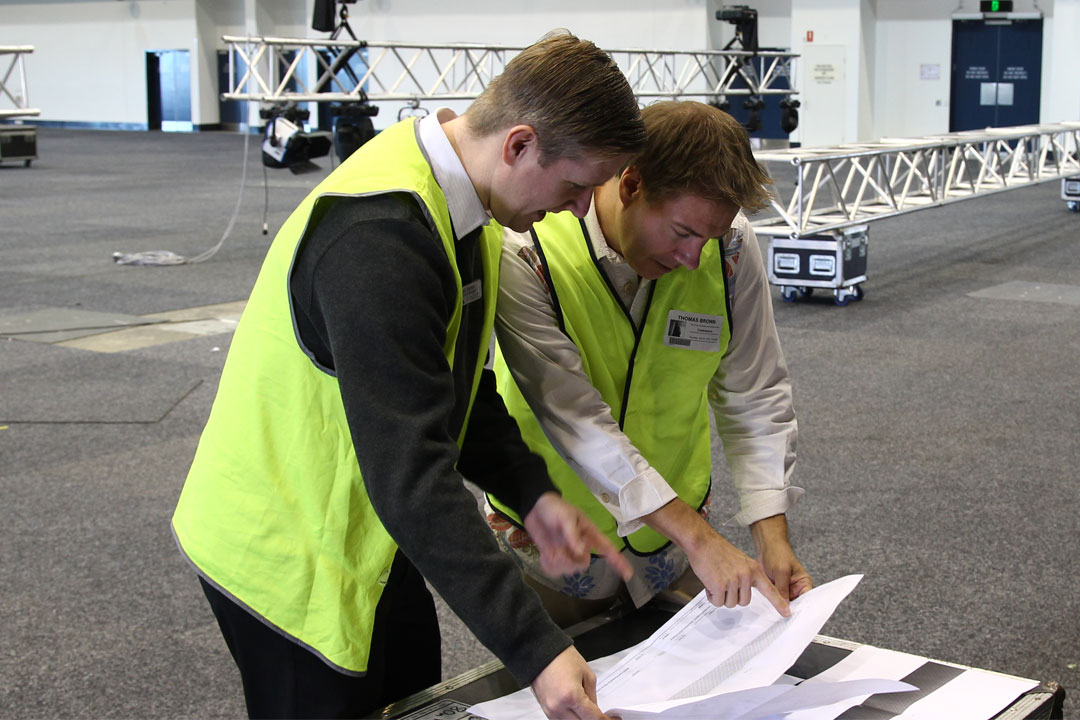What is it exactly that Event Managers do?

Event managers take care of the behind-the-scenes details for conferences, weddings, intimate events and everything in-between. Event managers are responsible for helping execute event plans from concept to completion by managing staff, budgets, vendor relationships and more.
"Event manager" is a broad term because it describes the variety of roles that may fall under the one job description. While each event manager will have their own specific duties based on the brief, there are some general responsibilities that every event manager can expect to manage. It can be challenging when preparing an event planning portfolio while looking for work, or currently working with a client who does not have the understanding of your job function and responsibilities. Find out about what event management entails and if it’s the right fit for you.
Event Management is a Variety of Things.
Event management can involve a variety of tasks to execute an event which include but are not limited to conferences, concerts, gala dinners, awards nights, product launches, trade shows, ceremonies and even funerals. As such it requires handling the logistics for an event like project management in addition to overseeing on-site teams.
Event managers are responsible for a wide variety of tasks, including management of the budget, overseeing the team installing the event but most importantly ensuring that all aspects are seamless.
Duties of an Event Manager:
- Selection of venue and booking
- Hiring outside vendors and or suppliers for the brief provided
- Securing speakers, entertainment and bands or DJ’s
- Obtaining necessary permits and insurance, ensuring that all suppliers working onsite have their own
- Compliance with Covid health and safety standards both prior to the event as well as on the day
- Developing Emergency Contingency Planning for wet weather or restrictions due to a pandemic
- Creating crisis plans of what to do in case an emergency
- Arranging logistics of transportation and parking for both arrival and departure to prevent bottle necking
- Overseeing the event from concept to completion
This list is not all-encompassing. Depending on the scope of your event and any other outside professionals hired, the responsibilities may vary. Essentially, the event manager is responsible for coordinating all logistics for an event.
The Role of Event Management Companies or Professional Conference Organiser PCO
Event management companies are frequently hired to plan and execute large-scale conferences or gala events. A professional event manager should also be ready to provide services for smaller corporate meeting, sporting events, weddings, and touring conferences or expos.
State, nonprofit, and corporate entities often need assistance with organising their most important events due to not having the resources or experience in house to be able to execute it internally. A company's event management function is usually found in their marketing or public relations department. If they have a special event staffing, the event management function may also fall under this umbrella.
Skills to Succeed as an Event Manager
As with any event-planning effort, event management requires strong organisational skills and time management to succeed. Multitasking and the ability to juggle a high number of moving parts at any one given time is essential to the success of this role, as well as an efficient time-management skill set.
In order to ensure the event's success, you need to prioritize and stay on task with pre-set deadlines for the work required you can use a program like Trello, Slack or Monday to keep your tasks front and centre. As an event organizer, persistence, creativity, and flexibility are key in seeing the vision of your event through. Your personality, organizational skills, and resourcefulness are also just as important.
Whether you prefer to work independently or within a team structure - event management is an exciting field that can provide dynamic challenges for individuals with a wide range of career ambitions.
Project management, as a function and responsibility, relies heavily on good interpersonal skills. Project managers are in charge of the coordination of many teams and individuals at the same time. Communication is always key to developing relationships with those people.
What Is The Difference Between Event Management And Event Planning?
Event management and event planning are two separate roles that serve different purposes and are independent from each other but cross over frequently. One of the main distinctions between the two is that managers execute details before and during an event, while planners create a vision for an event by developing preliminary plans.
However, event managers and planners may perform different tasks depending on the needs of the individual event. The two work together and what one does may overlap with what skillset the other possesses. While many individuals may take on both roles, training for each profession requires different skills.
At it's core, event planning refers to the conceptualization of an event, while event management involves the implementation. Planning focuses on strategy and what needs to happen in order for an event be a success. Event management deals with things being executed properly. While these two functions may overlap, they are not interchangeable.




